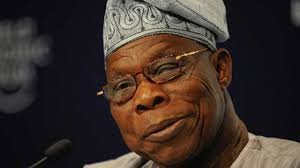The Trade Union Congress (TUC) has called on the Federal Government to move beyond mere discussions and take concrete actions to alleviate the economic challenges in the country.
Since assuming office in May, President Bola Tinubu ended the fuel subsidy and also floated the naira, resulting in the tripling of the price of petrol and a hike in the cost of living.
Although the Federal Government has rolled out plans to cushion the impacts of the moves with several meetings held between it and organised labour, the President of TUC, Festus Osifo said it was time to go beyond discussion, lamenting the hardship faced by Nigerians.
Osifo stated this on Channels Television’s Politics Today on Friday, February 9.
He said; “As an average Nigerian, one of the things you spend your hard-earned money on is actually food. The government must do something.
“We’ve had a lot of rhetoric: ‘We’ve declared a state of emergency on food security’. We have had a lot of meetings and summits on issues like this. Nigerians are tired of meetings, summits, and rhetoric. Today, the cost of items in the market has skyrocketed and gone over the roof.”
The Nigeria Labour Congress (NLC) and TUC have issued an ultimatum to the government to for failure to fulfill an agreement reached after the removal of the fuel subsidy by President Bola Tinubu.
The country’s Inflation stands at 28.92 percent, with food costs at 33.93 percent, according to the December 2023 report by the National Bureau of Statistics (NBS).
The naira has also fallen swiftly against the US dollar since the government ended a multi-tier exchange rate system and floated the local currency.
Before Tinubu’s reforms, the naira was traded at around 450 to the dollar, but it is currently trading at N1,400 to the dollar.
In the heat of the prevailing hardships, Nigerians have taken to the streets in Kano, Niger, and Osun states, demanding government action to ameliorate their plight.
Meanwhile, President Tinubu ordered the release of 102,000 metric tons of rice, maize millet, and garri from the government reserves and stores of rice millers to ease food inflation in the country.
The move was the high point of the three-day meeting of the Special Presidential Committee on Emergency Food Intervention, headed by the Chief of Staff to the President, Femi Gbajabiamila.
The federal government said it would henceforth clamp down on hoarders of food items in the country. It also announced that it may import commodities as a last resort to address the current shortages.



















